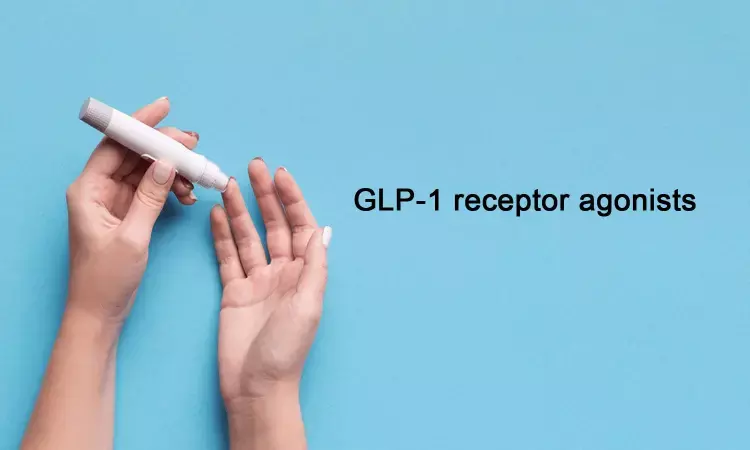- Home
- Medical news & Guidelines
- Anesthesiology
- Cardiology and CTVS
- Critical Care
- Dentistry
- Dermatology
- Diabetes and Endocrinology
- ENT
- Gastroenterology
- Medicine
- Nephrology
- Neurology
- Obstretics-Gynaecology
- Oncology
- Ophthalmology
- Orthopaedics
- Pediatrics-Neonatology
- Psychiatry
- Pulmonology
- Radiology
- Surgery
- Urology
- Laboratory Medicine
- Diet
- Nursing
- Paramedical
- Physiotherapy
- Health news
- Fact Check
- Bone Health Fact Check
- Brain Health Fact Check
- Cancer Related Fact Check
- Child Care Fact Check
- Dental and oral health fact check
- Diabetes and metabolic health fact check
- Diet and Nutrition Fact Check
- Eye and ENT Care Fact Check
- Fitness fact check
- Gut health fact check
- Heart health fact check
- Kidney health fact check
- Medical education fact check
- Men's health fact check
- Respiratory fact check
- Skin and hair care fact check
- Vaccine and Immunization fact check
- Women's health fact check
- AYUSH
- State News
- Andaman and Nicobar Islands
- Andhra Pradesh
- Arunachal Pradesh
- Assam
- Bihar
- Chandigarh
- Chattisgarh
- Dadra and Nagar Haveli
- Daman and Diu
- Delhi
- Goa
- Gujarat
- Haryana
- Himachal Pradesh
- Jammu & Kashmir
- Jharkhand
- Karnataka
- Kerala
- Ladakh
- Lakshadweep
- Madhya Pradesh
- Maharashtra
- Manipur
- Meghalaya
- Mizoram
- Nagaland
- Odisha
- Puducherry
- Punjab
- Rajasthan
- Sikkim
- Tamil Nadu
- Telangana
- Tripura
- Uttar Pradesh
- Uttrakhand
- West Bengal
- Medical Education
- Industry
GLP-1 receptor agonists lower asthma exacerbations in those with asthma and diabetes

USA: The administration of GLP-1R agonists in adults with asthma and type 2 diabetes results in lower counts of asthma exacerbations versus other drugs initiated for treatment intensification, finds a recent study.
The findings of the study, published in the American Journal of Respiratory and Critical Care Medicine, imply that GLP-1R agonists could be a novel treatment for asthma associated with metabolic dysfunction.
GLP-1R (glucagon-like peptide-1 receptor) agonists are approved for the treatment of diabetes and obesity. In preclinical models, they are shown to reduce airway inflammation and hyperresponsiveness. Katherine N. Cahill, Department of Medicine, Vanderbilt University Medical Center, Nashville, Tennessee, and colleagues, therefore, aimed to compare rates of asthma exacerbations and symptoms between adults with type 2 diabetes and asthma prescribed GLP-1R agonists and those prescribed SGLT-2 (sodium–glucose cotransporter-2) inhibitors, DPP-4 (dipeptidyl peptidase-4) inhibitors, sulfonylureas, or basal insulin for diabetes treatment intensification.
For this purpose, the researchers performed an electronic health records–based new-user, active-comparator, retrospective cohort study of patients with type 2 diabetes and asthma newly prescribed GLP-1R agonists or comparator drugs at an academic healthcare system from January 2000 to March 2018.
The primary outcome was asthma exacerbations; the secondary outcome was encounters for asthma symptoms.
Key findings of the study include:
- Patients initiating GLP-1R agonists (n = 448), SGLT-2 inhibitors (n = 112), DPP-4 inhibitors (n = 435), sulfonylureas (n = 2,253), or basal insulin (n = 2,692) were identified.
- At 6 months, asthma exacerbation counts were lower in persons initiating GLP-1R agonists (reference) compared with SGLT-2 inhibitors (incidence rate ratio [IRR], 2.98), DPP-4 inhibitors (IRR, 2.45), sulfonylureas (IRR, 1.83), and basal insulin (IRR, 2.58).
- Healthcare encounters for asthma symptoms were also lower among GLP-1R agonist users.
"Adult patients with asthma prescribed GLP-1R agonists for type 2 diabetes had lower counts of asthma exacerbations compared with other drugs initiated for treatment intensification," wrote the authors. "GLP-1R agonists may represent a novel treatment for asthma associated with metabolic dysfunction."
Reference:
The study titled, "Asthma Exacerbations in Patients with Type 2 Diabetes and Asthma on Glucagon-like Peptide-1 Receptor Agonists," is published in the American Journal of Respiratory and Critical Care Medicine.
DOI: https://www.atsjournals.org/doi/abs/10.1164/rccm.202004-0993OC
Dr Kamal Kant Kohli-MBBS, DTCD- a chest specialist with more than 30 years of practice and a flair for writing clinical articles, Dr Kamal Kant Kohli joined Medical Dialogues as a Chief Editor of Medical News. Besides writing articles, as an editor, he proofreads and verifies all the medical content published on Medical Dialogues including those coming from journals, studies,medical conferences,guidelines etc. Email: drkohli@medicaldialogues.in. Contact no. 011-43720751


